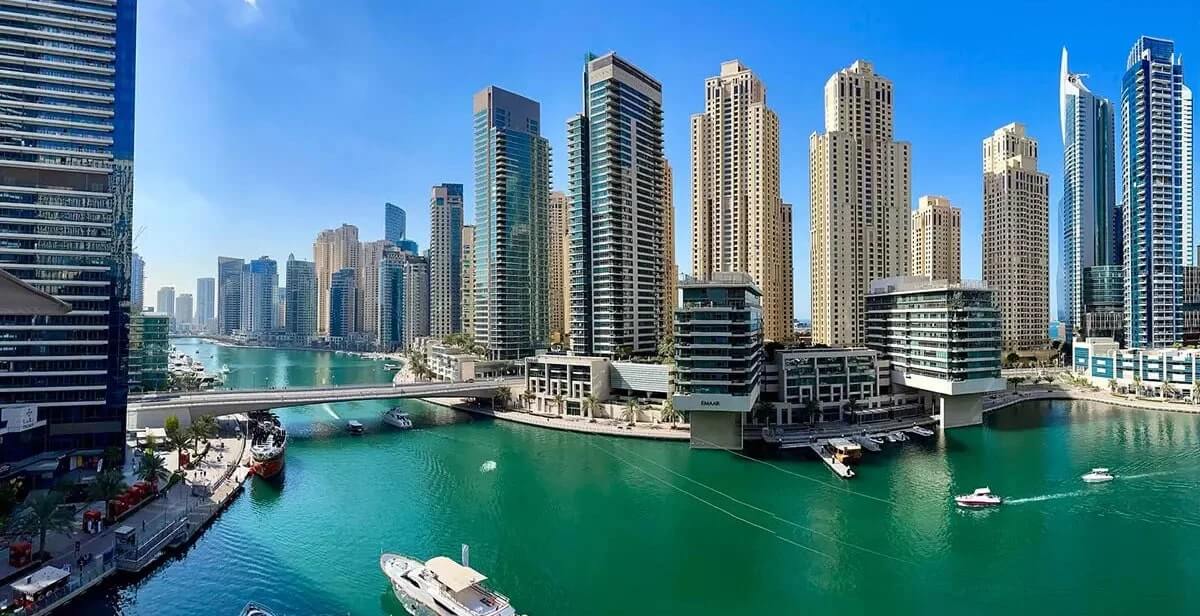Why may a company need to be closed
Closing debts
A company cannot simply cease its operations. An official bankruptcy procedure must be initiated 2-3 months before the license expires to liquidate it. During this process, accounts are closed, and assets are sold off. The proceeds are used to settle debts. After a successful liquidation of company in corporate accounting and the company closure, its license is revoked, and its name is removed from business registries, tax authorities, and insurance services records.
Avoiding sanctions
It is crucial to close a company in the UAE on time, even if there are no debts. This will help avoid unpleasant consequences such as penalty sanctions and having the company, its shareholders, directors, and founders blacklisted. It could result in a travel ban, meaning restrictions on entering and leaving the country. In such a case, you can forget about prospects for residency or returning to the UAE market.
Procedure specifics

The process of closing a company is no less complex than the process of opening one. If the license expires, the company does not automatically close. Proper preparation of documents is necessary, taking into account local laws, terminating contracts with contractors, paying salaries and benefits to dismissed employees, and settling with landlords. Each type of activity implies its own rules.
Important!
Employment Contract
It’s important to understand what happens to employees when a company closes in UAE. The country has a labor law that came into effect in 2022.
- Firstly, upon liquidation of the business, visas and work permits must be canceled. Employees then have 180 days (6 months) to find new employment—they can stay in the country for this period after the company closes.
- Secondly, under the law, employees are entitled to receive payments such as salaries, benefits, bonuses, and vacation pay. These payments are made in order of priority: first settling debts with creditors, then with employees who are unsecured creditors.
Extending the license
If the company’s license expires by the time liquidation begins, the company will get a fine. It’s cheaper to simply renew the license. Even better: start the renewal process 2-3 months before the license expires.
Without qualified assistance, navigating the intricacies of closing a firm is challenging, especially if you’re not a lawyer. If you’re unsure how to liquidate a business, seek help from our specialists: we have the necessary knowledge and experience in this area.
Company liquidation process in UAE
The procedure for liquidation in the UAE depends on factors such as:
- type of ownership;
- number of participants;
- number of local and foreign employees, and whether visas were issued for them;
- quantity and types of assets registered to the enterprise;
- the jurisdiction where the company was registered.
Types of company liquidation in Dubai (UAE)
Closing a company in the UAE can only be done in two ways: voluntarily and compulsorily.
Compulsory liquidation of a company
This type of liquidation is initiated by creditors through court proceedings when the business has overdue debts. If the company cannot pay its debt in the usual way (it does not have profits), the court may compulsorily order its liquidation, and its assets will be sold to cover the debts.
Voluntary liquidation of a company
This type of liquidation can be initiated by a third party, such as shareholders, by mutual agreement. The reasons for voluntary liquidation of a company may include a lack or insufficiency of profit or a decision by the participants who no longer wish to continue a particular type of business because its objectives have been achieved.

Type of ownership
If you have an individual enterprise (Sole Establishment) or a private business (Sole Proprietorship), you will need to:
- obtain permission to cease operations from the relevant departments: Department of Economic Development, Ministry of Economy, and Ministry of Human Resources and Emiratisation;
- close all obligations to the tax authorities, partners, employees, utility services, communication providers (phone and internet), and landlords;
- obtain all certificates of no debt;
- revoke the license and close the bank account.
If you are a legal entity and your enterprise is a limited liability company, general partnership, limited partnership, public joint-stock company, or private joint-stock company, you are required to appoint a liquidator. The liquidator is responsible for carrying out the closure process and distributing funds among creditors. The liquidator can be an employee, a qualified specialist, or a legal entity such as an accounting or auditing firm. If the company does not appoint a liquidator, one may be appointed by the court.

Jurisdiction
The procedure for liquidating a mainland company in the UAE can differ from closing a business in a free zone. Much depends on the decision of the competent authority of the SEZ where the registration took place.
Often, appointing a liquidator is not required in these cases, but settling all obligations and debts is mandatory: first, funds are paid to creditors; second, to unsecured creditors (employees); and third (if anything remains after all payments), to shareholders.
After obtaining the necessary clearances, you can initiate the company’s closure. The next section will outline the step-by-step process for properly closing a company in the Emirates:
Company liquidation procedure in the UAE

Liquidation of a mainland company
Steps:
- Company liquidation procedures for UAE mainland companies begin with preparing the minutes of a meeting where shareholders decide to liquidate the company. In this document, a liquidator is appointed if the company has an appropriate legal form as mentioned above. The decision must be notarized.
- Obtaining an official letter from the liquidator stating they are taking on the relevant obligations.
- The liquidator sends a certified protocol with a package of prepared documents to the licensing authority: the Department of Economic Development (DED).
- Obtaining permission for liquidation and publishing it in local newspapers in English or Arabic.
- Getting approvals from all interested parties. At this stage, all settlements with creditors are completed, contracts are terminated, and bank accounts are closed, etc. This process usually takes about 45 days.
- Submitting a report on company liquidation to DED. After verifying all documents, DED issues a certificate canceling the license.

Liquidation of a Free Zone company
Steps:
- Preparing the shareholders’ resolution to liquidate the company. Since a company registered in a Free Zone does not need to involve local investors, the document must be notarized and additionally stamped by the UAE embassy, the Ministry of Justice, and the Ministry of Foreign Affairs. If the shareholders’ meeting did not decide on appointing a liquidator, the steps involving a liquidator are skipped. Otherwise, proceed to the second step in the left column.
- Send a notification with a certified protocol to the authorities that issue the commercial license in the Free Zone.
- Publishing the company liquidation notice in local media. Each local department may have its own requirements: these may include specific communication channels or requirements for placing information across multiple sources.
- Obtaining certificates from all interested individuals and legal entities stating they have no claims against the owners, shareholders, and directors of the company.
- Submitting the report and documents for review by the competent authorities. After their review, the company receives a certificate stating that the license has been canceled.
What documents are required for the procedure
Liquidating a company with corporate management requires preparing the following set of documents:
- Notarized shareholder agreement for company liquidation.
- Liquidator’s agreement to assume obligations.
- Copy of the trade license.
- Copy of the founding agreement.
- All types of powers of attorney (if issued).
- Copies of passports (for foreigners) or Emirates IDs (for local residents) of owners, directors, and investors.
- No objection letters from partners.
- Visa cancellation forms for all foreign employees and investors, signed by the General Directorate of Residency and Foreigners Affairs (GDRFA).
- No objection certificate from the landlord.
- Certificates from utility and service providers stating that the company has no outstanding payments for water, electricity, and telecommunications services.
- A Certificate of bank account closure.
- A Certificate of deregistration from VAT and corporate tax.
The procedure for closing private companies with a single owner, representative offices, and branches is somewhat different. Therefore, some documents may not be relevant for them. When ordering a company liquidation service in Dubai, UAE, or a Free Zone, our qualified specialists will audit your business and provide the most relevant information.
The cost of company liquidation services in Dubai (UAE)

The cost of liquidation of company in Dubai and other emirates may vary depending on various factors: region, organizational and legal form, and size of business. If you do not delay the process until a forces liquidation, when government courts dictate the terms, the process can be much cheaper.
Our services typically cost between 1,500 and 8,000 dirhams. For more accurate information, we recommend contacting our experts, who specialize in closing companies in the UAE. They will help you prepare the necessary documents and navigate the process as quickly and easily as possible.
How we assist with company liquidation
When you order our service and appoint our licensed firm as the liquidator, we take on all necessary functions:
- We conduct a business audit to assess assets and liabilities.
- We assist to prepare, translate, process, and notarize documents.
- We review creditor claims and help allocate funds from asset sales according to priority.
- We distribute the remaining funds among shareholders.
- We assist in closing bank accounts.
- We gather all certificates and confirmations of no debts and outstanding obligations.
- We prepare necessary reports for registration authorities.
What sets us apart is our extensive experience, high level of responsibility, qualified staff, and established connections in all departments. Therefore, we guarantee to help you avoid many bureaucratic hurdles and delays. After all, a company that isn’t profitable and isn’t closed costs its owners a lot! By ordering our services, you will make the business liquidation process less expensive and time-consuming.









